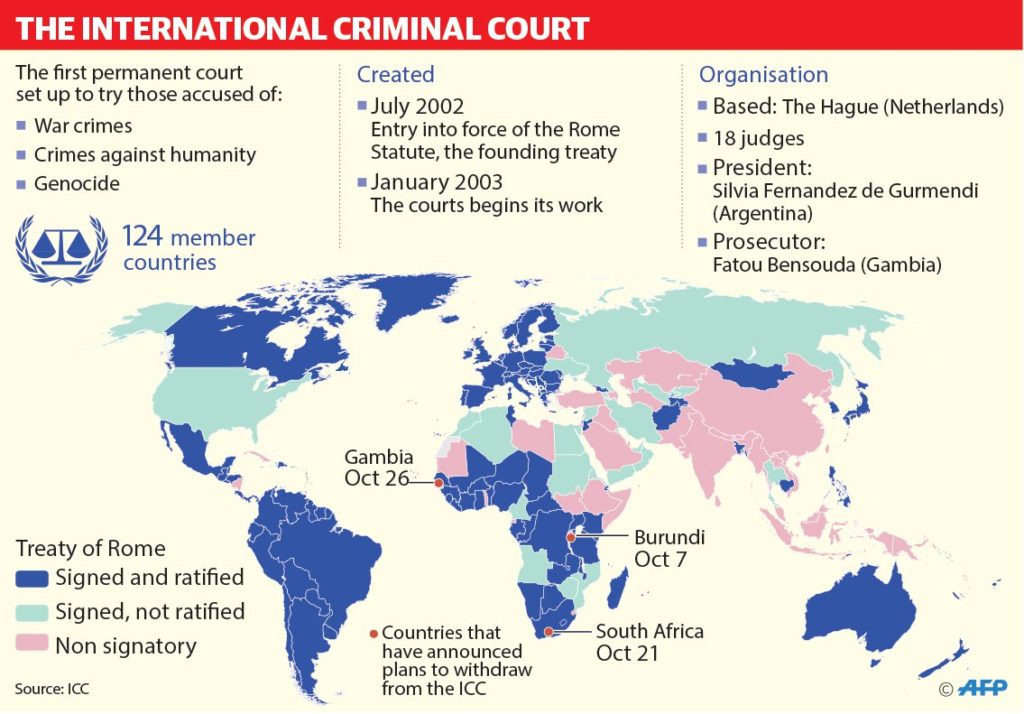[et_pb_section bb_built=”1″][et_pb_row][et_pb_column type=”4_4″][et_pb_text _builder_version=”3.17.6″]
The international criminal court was set up as a tribunal to try international leaders accused of criminal acts under the Rome statute in 2002 and has had 123 member states mainly African.
Since its inception, has only convicted one former head of state, who was African and failed to prosecute any American or European leaders in spite of various atrocities committed by American and European army.
The ICC and the Rome statute have come under a lot of pressure from African leaders many of whom have previously threatened to exit from the agreement citing political persecution and intimidation from the court.
Our own president Y.K Museveni has on various occasion come to the defense of African leaders who have been target of the court and has welcome president Omar El Bashir of Sudan numerous times to Uganda despite repeated calls by the ICC prosecutors to have him arrested on sight.
The behavior of the court is not surprising given that even foreign missions have openly ventured into political activism against host government policies. In 2018, the French ambassador together with her counterpart the American ambassador Deborah Malac, joined hands with activists to protest government social media tax which was meant to help government collect taxes to be able to pay off debts and provide services in the telecom sector.
The American embassy has also gone on to undermine judicial processes like the ongoing trial of members of the Kasese royal guards who attacked and killed police officers in 2016. We are yet to see a single statement by the Embassy castigating the accussed for the atrocities comitted.
The avenues to diplomacy and activism are quite distinct and the lines separating them clearly visible. What these institutions need to do is respect the courtesy of partner states and at least follow the legal structures and justice systems to settle local conflict. Uganda is a mature democracy and has the capacity to overcome challenges in governance without external players.
[/et_pb_text][/et_pb_column][/et_pb_row][/et_pb_section]
